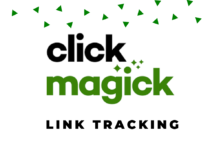Is OpenAI the New Google? What Marketers Should Know – CMSWire
The Gist
- AI redefines search. OpenAI’s collaboration with Microsoft may revolutionize search dynamics and marketing strategies, emphasizing personalization and user experience.
- Marketing shifts expected. Marketers need to adapt SEO and content strategies to align with AI-driven search engines, potentially changing the competitive landscape.
- Analytical opportunities expand. New AI-powered analytics tools could provide deeper insights into user behaviors, enhancing targeted marketing efforts.
As
How Will the Search Paradigm Change?
OpenAI’s entry into the world of AI-powered search engines could significantly alter the current search paradigm in several ways, along with the way that consumers use search engines. AI technologies excel in understanding and processing natural language, allowing them to interpret user queries more contextually and conversationally. This could lead to more intuitive search experiences where users can ask complex questions in natural language and receive more accurate, context-aware responses.
This shift would enhance the search experience by making it more aligned with human conversational patterns rather than requiring keyword-specific inputs. This could also greatly impact voice search, as users could simply ask questions the way they would with another human.
With AI at its core, the OpenAI search engine could personalize search results more effectively based on the user’s past interactions, preferences and even inferred needs. This level of personalization would not only improve user satisfaction but also change how consumers search for information, potentially making them rely more heavily on AI to curate content that aligns with their interests and behaviors.
AI-driven search engines could better synthesize information from various sources to present comprehensive, coherent content summaries. This capability would be particularly beneficial in delivering a high-level overview of complex topics, reducing the need for users to visit multiple pages to gather diverse viewpoints or piece together detailed narratives.
With increased personalization and understanding comes the heightened responsibility of managing user data ethically. Consumers might become more cautious about how their information is used, impacting their search behaviors and preferences for platforms that prioritize privacy. This may also impact current and future consumer data privacy legislation, which will itself impact the way that LLMs interact with consumer data.
The introduction of a powerful new player in the search engine market could drive existing companies like Google to innovate further, accelerating the overall pace of development in search technologies. This competition could lead to rapid advancements in how search engines operate and serve content, benefiting consumers with more advanced, user-friendly options.
By potentially offering a more intuitive, personalized and conversational search experience, OpenAI’s search engine could encourage consumers to engage with search technologies in fundamentally new ways, making the act of searching for information more aligned with natural human interaction. This shift could redefine user expectations and set new standards for what a search engine can do, influencing not just consumer behavior but the entire ecosystem of online information retrieval and the way consumers view and interact with the web.
Final Thoughts
The potential launch of OpenAI’s search engine is likely to represent a watershed moment in the evolution of search and digital marketing. While it promises exciting innovations such as enhanced natural language processing (NLP), personalized results and conversational interactions, it also raises important considerations around adapting marketing strategies, ethical data usage and heightened competition.
The AI-driven search engine’s evolution underscores the relentless pace of AI advancements reshaping how we seek and consume information today.


